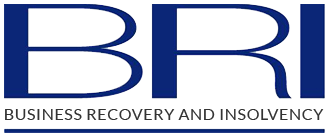17 January 2023: A lot of enquiries which we take on a day-to-day basis are companies that are struggling financially and the majority of which have HMRC liabilities in respect of VAT, PAYE and NIC. Over the years these debts have ordinarily accrued over a substantial amount of time and despite requests from HMRC being made to companies during this period to pay what is owed, it is somewhat rare that HMRC would petition to wind-up a company for the unpaid debts. One of the reasons for this could have been because in an insolvent liquidation scenario (where a company cannot pay its debts and is formally liquidated), HMRC would rank as an unsecured creditor and, in reality, rank at the bottom of the pile for dividend purposes with the majority of other unsecured creditors and would scarcely receive anything back on the debts.
However, the insolvency legislation changed on 1 December 2020 and since then HMRC, in relation to VAT, PAYE and NIC, were no longer considered an unsecured creditor and would rank as a secondary preferential creditor, which is a lot higher up the ‘hierarchy of creditors’ in an insolvent liquidation scenario. Given the timing of this being around the Coronavirus pandemic and the fact that HMRC were trying to help companies survive by granting payment holidays and longer time-to-pay agreements, their collections team clearly appeared to have a passive approach; which was probably the right thing to do.
Fast forward to 2023 and, as before, we are still seeing a number of insolvent companies with large debts due in respect of VAT, PAYE and NIC, but HMRC are no longer being passive (and rightly so), to which some directors may have seen them as previously and are now seemingly being quite aggressive in their approach in trying to recover funds.
Usually HMRC will petition to wind-up companies that have outstanding liabilities with them if the circumstances fit but they appear to be taking a different approach as of late by requesting that the company directors give security for the PAYE and NIC debts; meaning that the directors’ could be personally liable to pay the security for all or part of the debts. It is to be noted that they have been able to do this since the early 2000’s but there seems to be a major surge in these requests being made to directors lately and could be a sign of them being aggressive with companies for unpaid tax bills in the future.
Whilst they may appear to be a bit more aggressive in their collections, HMRC are always very approachable and take on board certain circumstances and do offer the possibility of time-to-pay agreements as an alternative to requiring security from directors (if it is viable of course) but directors need to be aware to deal with HMRC promptly and not to just ignore or forget about any letter they receive regarding collections.
If you or a client has received a notice of requirement to give security to HMRC then you may wish to seek advice and we are always available for a free, without obligation, meeting/phone call to discuss the matter. Please contact one of our management team for more information.
